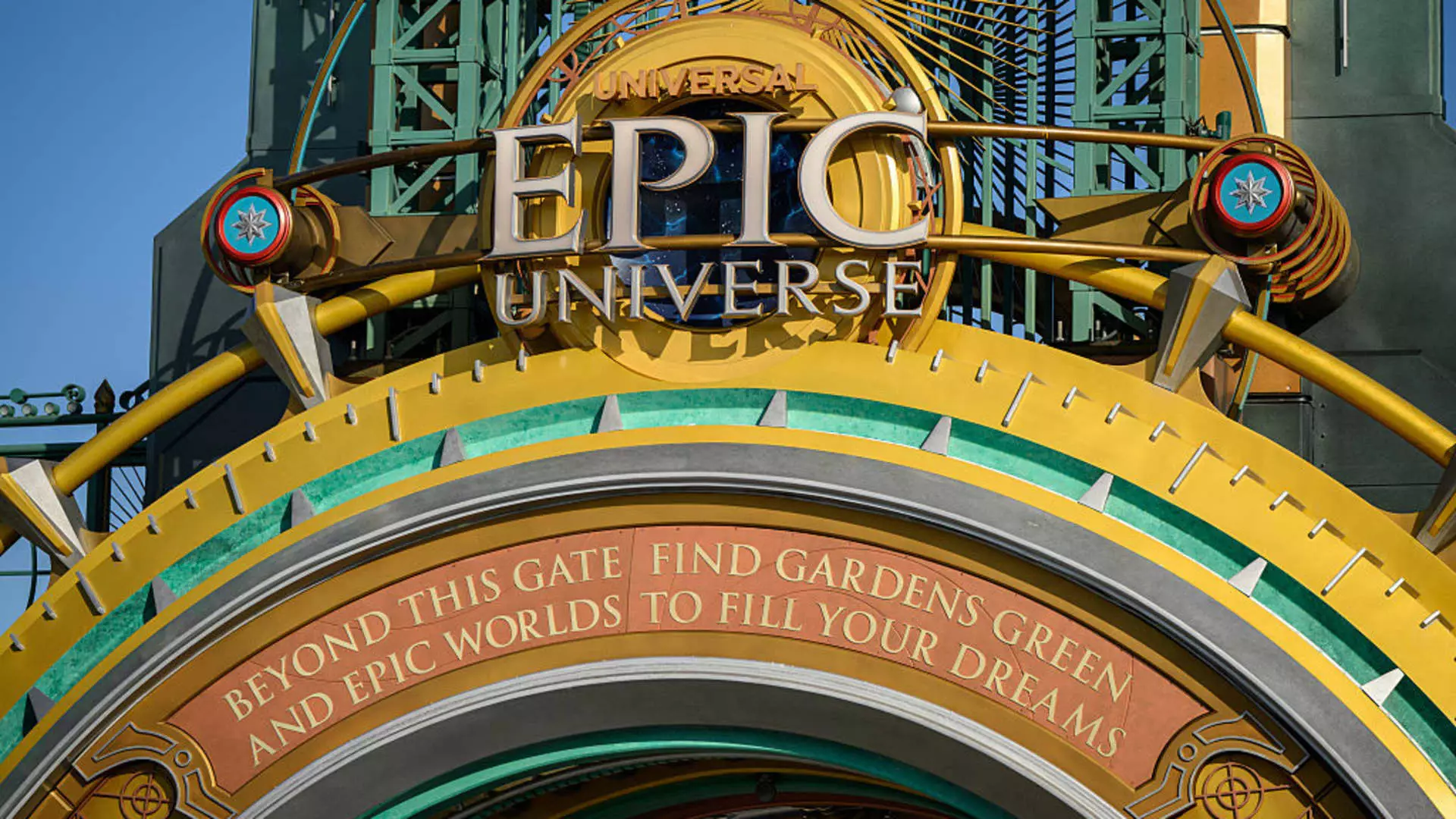In just a little over a month, Orlando stands on the brink of an unprecedented transformation as Universal prepares to unveil Epic Universe, the first major theme park constructed in the past quarter-century in Florida. With a sprawling expanse of 750 acres, this monumental addition features five uniquely themed worlds that promise to captivate millions: The Wizarding World of Harry Potter – The Ministry of Magic, Super Nintendo World, How to Train Your Dragon – The Isle of Berk, Celestial Park, and Dark Universe. As it syncs with existing icons like Universal Studios and Walt Disney World, Epic Universe is not merely entering the market—it plans to redefine it.
This transformation isn’t just a minor tweak to Orlando’s highly lucrative tourism industry; it symbolizes a paradigm shift. The projected draw of more than 74 million visitors to Orlando in 2023 can be attributed largely to its entertainment appeal, making tourism a cornerstone of the local economy. Casandra Matej, CEO of Visit Orlando, has already heralded Epic Universe as a catalyst for economic revitalization, arguing that “a compelling reason to visit Orlando” is about to be born. The implications of this new development are staggering and multifaceted.
The Economic Power of Epic Investment
Universal’s staggering $7 billion investment in Epic Universe serves as a testament to Comcast’s unyielding confidence in the power of experiential entertainment. This isn’t about profit margins alone; it’s about building a legacy that enhances Orlando’s status on a global scale. In a landscape where theme parks comprise a significant portion of Florida’s economic backbone, Epic Universe is engineered to be more than just a revenue generator.
Reports suggest that Universal Orlando generated around $44 billion in economic impact from 2019 to 2023, and Epic Universe is primed to feed into this statistic with an anticipated growth spurt that could yield approximately $2 billion in its inaugural year alone. The importance of this is not just numerical—it’s a harbinger of job creation and ongoing community growth. Even now, as many as 65,000 jobs are being created specifically for its construction, a fate that juxtaposes booming employment against rising living costs and housing shortages in the region.
Job Creation and Economic Ripple Effects
The job market in Florida appears to be thriving, yet one must ask: at what cost do such expansions come? There’s no denying that the park’s opening will generate around 17,500 new jobs, including roles in engineering, design, and operations, but this leaves us wondering how many of these positions will provide sustainable income for those they employ. Are we prioritizing quantity over quality when we beckon these large-scale developers into our neighborhoods?
While Universal’s projects often promise economic windfalls, we must critically assess whether these jobs will help local citizens or primarily attract transient talent from outside the region. The duality between boosting local economies and gentrification cannot be overstated. When new developments spring up, they simultaneously drive up housing costs and challenge existing community structures.
The Viability of Increased Competition
As competition among theme parks intensifies, it raises an important ideological question: will new investments really enhance consumer welfare or lead to a homogenized experience? While industry experts suggest that Epic Universe may bolster ticket sales for Disney and other experiences nearby, there is a danger in viewing tourism as a zero-sum game.
“Rising tide lifts all boats,” they say, but is that a reality when consumer choices narrow, and the focus shifts to mega-developments that could saturate the market? The influx of visitors is anticipated to extend beyond the new park directly, as more out-of-state and international travelers incorporate the additional attraction into their itineraries, which sounds fantastic on the surface but masks potential deeper issues regarding over-tourism.
Community Impact and Future Outlook
The central question remains: are these globalized entertainment ventures creating a lasting positive impact on Orlando’s community? A majority of tourism revenue cycles back into the large corporations that own these parks, often leaving local small businesses to fend for themselves. While reports indicate that the surrounding area will benefit from new infrastructure and businesses cropping up in its wake, it’s essential to ask whether these establishments prioritize local engagement or remain tethered to the interests of conglomerates.
In accommodating the influx of tourists, will we fracture the identity of the destinations that drew them in the first place? Local restaurants and shops must be deftly integrated into this expansive vision if we are to preserve a sense of community amidst inevitable commercialization.
Orlando’s economic landscape is on the cusp of seismic change with Epic Universe opening its gates. As thrilling as it may sound, we cannot afford to overlook the shadows cast by this monumental investment. The resulting economic implications will be significant, but engaging with these developments thoughtfully is essential for ensuring that the rush to capitalize does not leave a wake of socio-economic challenges and diminished community engagement in its path.

